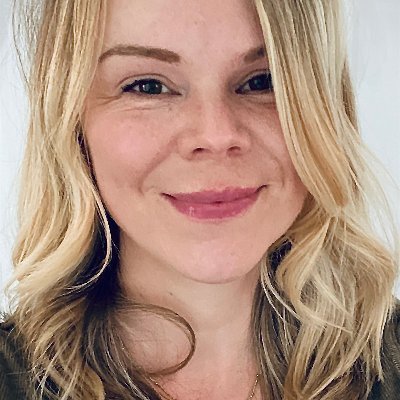
Today’s post is by author Catherine Baab-Muguira.
So much querying advice is the same. No matter which article you’re reading, which podcast you’re listening to, or even the particular genre you’re working in, the guidance rarely varies: Start with story. Spend your first paragraph hooking ’em with plot, characters, conflict.
It’s fine advice as it goes, but when it reaches this level of ubiquity, a problem arises. Most every writer is pitching agents in the exact same way, and it follows that agents’ inboxes are full of lookalike queries. Under these conditions, is it any wonder that agents rarely respond in any personal way, instead relying on form rejections? Perhaps the reason form rejections predominate is because form queries predominate.
Pause for a moment and imagine you’re an agent. Every hour of the day, every day of the year, your inbox is filling up with queries, and 90% or more of those queries spend the first paragraph breaking out all the usual story details about who’s involved, what’s at stake, yada yada rising action, bla bla bla cliffhanger, ad infinitum. The mind glazes over. To read through it all must feel like you’re singlehandedly bailing out the Titanic, and we all know how that story ended.
I’m familiar with this scenario not because I’m a literary agent but because I spent 12 years querying in the conventional way. Then I stopped, reevaluated, began using a different technique I’d gleaned from my day job in email marketing … and basically everything changed. Within one week of sending out my new query letter to eight agents, I received offers of representation from four of them, at which point I faced the incredibly first-world problem of picking among them.
Granted, I was doing a few things differently, including writing in a new genre, and I cannot say precisely what worked. But having eaten, lived, and breathed email marketing for way too long now, I believe I know. What made the biggest difference was changing my first paragraph, and more specifically, pitching myself first, not my project.
Here’s what that looked like in practice:
Hi, [Firstname]—
I’m contacting you after coming across your profile and realizing that you agented [Book Title] as well as [Book Title]. My name is Catherine Baab-Muguira, and I’m a writer who’s contributed to New York Magazine’s The Cut, Playboy.com, Salon.com and FastCompany.com, among others. My June 2016 Quartz essay, “Millennials Are Obsessed with Side Hustles Because They’re All We’ve Got,” has been shared on Facebook more than 50,000 times and also became the focus of an April 2017 episode of NPR’s On Point.
Why query this way, leading with oneself? Let me count the ways:
- For starters, if everyone is querying the same way, there’s likely no advantage in your querying that way, too. Successful querying is about standing out, not fitting in.
- Professionals tend to want to work with other professionals. If you begin by establishing your professional bona fides, then you’ve cleared a potentially major obstacle, right at the beginning.
- In the same vein, people tend to care about who’s talking at least as much as what’s being said. It’s a mental shortcut we all use to cut down on noise, and its why email marketers agonize over the “from line” of their messages, over whether to sign an email as though it’s from a particular person or the brand that one is representing, etc. Long marketing lecture short, if you lead with whatever personal information makes you seem the most credible, then you’re putting thousands of years of human evolution on your side. Most importantly, the person receiving your email is likelier to keep reading.
Why does this all this matter so much? It’s simple. Nothing is as important as an agent reading past the first paragraph of your query. If they don’t read past your first paragraph, they won’t read your second paragraph—much less your manuscript.
You don’t have to be a freelance journalist like me to approach agents in this way, either. When helping friends with their query letters, I’ve pulled the following wowzer details from the pits of paragraph four up to paragraph one, where they belong:
- I was part of a Pulitzer-winning reporting team for the New York Times.
- I was the first woman ever to make partner at [cutthroat Manhattan law firm].
- I was a Wall Street analyst who witnessed high-level investment scams.
Talk about burying the lede! I only wish I’d had this kind of cred to tout when I was querying. Still, my gnawing professional envy isn’t the point. Are you burying the lede in your query letter, too?
Maybe, like my friends, you have a high-status or relevant job. Are you a public defender, a doctor, a librarian, a Wall Street vet, an advertising copywriter, some other kind of media worker, or a PhD in literally anything?
Or you could have some more unusual and intriguing way of making a living. Maybe you’re a maximum-security prison guard, a backup dancer, or a nanny to some obscenely wealthy and dysfunctional family. Any of that could be interesting, especially if it’s relevant to your project, so consider positioning it front and center. Ditto any significant social-media following (say, 10,000 followers or more) that you may have.
Now, perhaps you don’t have a high-status or unusual job, which is true for many of us. Have you published any short pieces? It only takes two journal publications or freelance bylines for you to be able to say, “I’m a writer who’s contributed to [publication] and [other publication].” Meanwhile, freelancing is relatively easy to get into. Get hustling on that front, and in a few weeks or months, you could be opening your query in a whole new way—coming across like you’re established, legible, seasoned, a pro who knows what’s what.
At the very least, it’s worth thinking through why you might want to defy the conventional (and all too common) querying advice. I don’t know about you, but I get tired just thinking what it must be like to be an agent on the receiving end of endless, highly similar solicitations. It makes me want a beer. And a nap. And a day off. If you’ve been querying a long time—12 years, anyone?—then you might try something new. The change could be as simple as the first paragraph of your query, and your writing fortunes just might change, too.

Catherine Baab-Muguira’s debut, Poe for Your Problems: Uncommon Advice from History’s Least Likely Self-Help Guru, was published by Hachette in September 2021. She also writes a free email newsletter called Poe Can Save Your Life, packed with darkly inspiring self-help tips for writers and other creatives. Check it out here.

I was a slush-pile reader in a boutique literary agency, and the conventional advice works best. It is the least distracting and most efficient. But glad you found your own way!
I’ve never been a literary agent either, but I spent a lot of time and energy in the 90s and 00s querying. I did end up with an agent in Florida, but I think they had as many connections as I did. And I also _nearly_ snagged one in NYC, who asked for edits, which I excitedly provided, but alas it was still a no.
My main point though is that I’ve never understood why agents take so long to reply. After all their experience in publishing and all that exposure to writing from excellent to atrocious, can’t they tell from the first couple of pages of the sample whether a query is worth pursuing further? Can’t they use their experience to be efficient?
As an analogy, I have watched a lot of film. I am at the point now where it’s very difficult to find an _excellent_ film to watch. Fortunately, in a sense, I’m able to tell whether a film is going to be any good in less than 5 minutes of watching.
The great 18th-century writer Samuel Johnson was once queried by his famous biographer James Boswell about why he didn’t finish to the end all the books he started reading. Johnson’s answer was: “When I take up the end of a web, and find it pack-thread, I do not expect, by looking further, to find embroidery.”
That’s a good way for an agent to get a hundred titles off their desk and concentrate on the five that could become nicely embroidered books.
I’m very glad this worked for you and congrats, but I’d be cautious universalizing this advice as being applicable to everyone. Authors who are writing fiction, for instance, don’t need writing credits and may not have impressive credentials and that’s totally fine. It’s far more important for fiction to nail the plot description than it is to wow the agent with your resume.
For nonfiction, platform is definitely more important and it’s great to think of how to frame your key selling points, but that may still mean focusing first on the book project and buttressing that with your credentials rather than leading with them.
And as a former literary agent, most of the agents I know would rather see a well-executed conventional query than seeing people going out of their way to break the mold. After reading tens of thousands of queries, what stands out is quality, not authors who go out of their way to do things completely differently. There’s no such thing as lookalike queries. As Seth Fishman pointed out on a Comic-Con panel I moderated yesterday, agents have developed their own internal AI to sift through queries and can very quickly find the good ones.
Just my two cents!
This is definitely a technique worth trying! It certainly can’t hurt. I’ll have to think how I can make myself stand out in that first paragraph—- or what about me and my writing is interesting or different! I have a huge mental block when it comes to things like query letters and cover letters— precisely because I think they are boring, all say the same thing and everyone who writes one is after the same thing! They want the job, they want the book deal, the representation. So I hardly see the point in writing them. But I suppose, if I thought about it as another opportunity to share a little more about myself, that is related but isn’t solely about the work, that could work. That could make me come across as a little more relatable! And perhaps I might enjoy the process a bit more.
I would imagine that at a certain point, if enough writers take your suggestion and pitch themselves fist in queries, this too will become stale and cause agents’ eyes to glaze over. Then a new pitch technique would be needed. The other issue might be that some of us may not have the fancy credentials or pHDs even though we have decades of writing experience, so just going by university degrees and big-name publications will also weed out many thoroughly qualified writers.
Great advice Catherine . I think the rules are changing since many best sellers now use profanity as part of their title. Get the attention of the agent first, use something different. In Florida we ban some of the best books ever written but proudly market and sell self-help books with f*ck, and ass in the title. All good with me, so my point is, using something bold in the query just might work…f*ck it-
This is fantastic advise. As an entrepreneur, I am not comfortable with cookie cutter templates that many book coaches promote. So I was happy to read this. Thanks Catherine.
I think this would only work if you have something impressive to say about yourself.